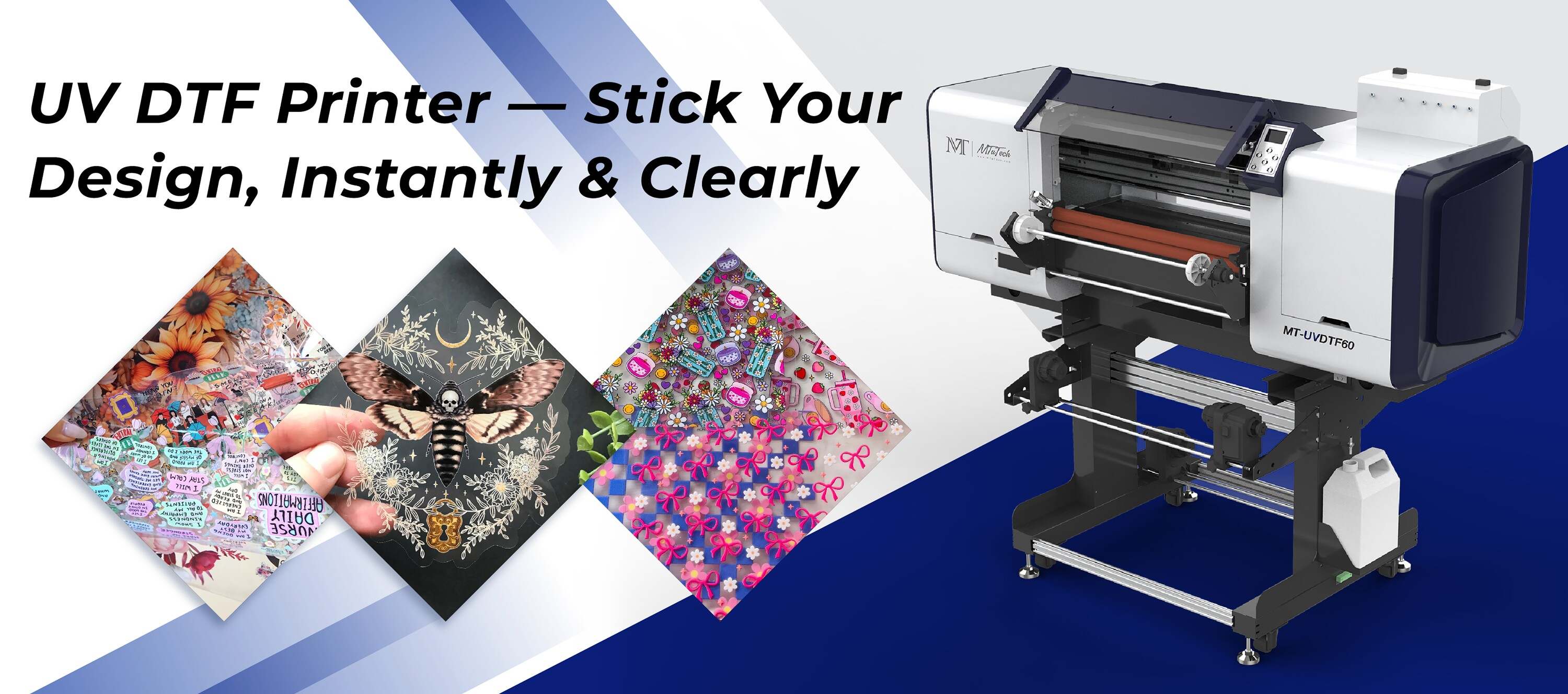 Introduction
Introduction
UV DTF printing isn’t just about full-color transfers — it’s also a powerful tool for adding texture, gloss, and tactile finishes that elevate your product’s appeal. With specialized UV DTF inks and layering techniques, you can produce special effects that make your prints stand out. Let’s explore how to use these effects to add dimension and luxury to your products.
Types of UV DTF Special Effects
- Glossy Varnish: Adds a shiny topcoat over selected areas
- Matte Finishes: Create contrast when paired with gloss layers
- Raised or Embossed Ink: Achieved through multiple varnish passes for tactile feel
- Spot Effects: Target specific parts of your design for highlights
- 3D Textures: Simulate textures like leather, metal, or fabric
How to Apply Special Effects in Your Workflow
- Design Phase:
- Create separate layers for varnish or special effect zones
- Use vector paths or solid color blocks to guide application
- RIP Setup:
- Assign white, CMYK, and varnish channels properly
- Adjust varnish density settings for desired thickness
- Printing Tips:
- Do test prints to avoid over-inking
- Keep your film clean for clear varnish visibility
Creative Uses of UV DTF Effects
- Add gloss highlights to text on decals or labels
- Emboss logos on packaging for a luxury finish
- Create mock textures on gadget skins or phone cases
- Use raised varnish for tactile branding on merchandise
Things to Keep in Mind
- High-gloss varnish takes slightly longer to cure
- Raised textures may reduce flexibility on curved surfaces
- Store printed films flat to preserve the effect
Conclusion
Special effects in UV DTF printing offer a premium edge that goes beyond standard decoration. With thoughtful design and expert execution, you can create unforgettable prints that command attention and increase value.
✨ Add a wow factor to your prints with our precision-layered UV DTF printer — built to produce gloss, texture, and brilliance with every transfer.
